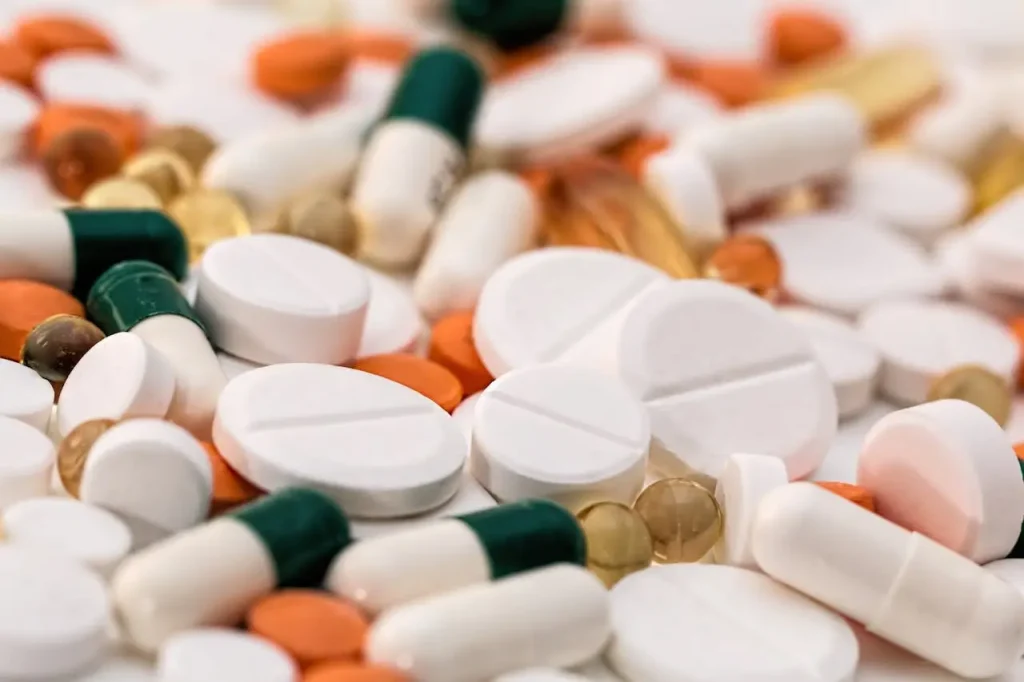Understanding the Impact of Drug Misuse on Your Brain and Body: Seek Help Today

Do you ever wonder about the impact of drug misuse on your brain and body? If so, it’s crucial to seek help today. Drug misuse can wreak havoc on both your physical and mental health, leading to a range of devastating consequences.
The Effects of Drug Misuse on the Brain
When it comes to your brain, drugs can alter its chemistry, affecting your mood, behavior, and overall cognitive function. The brain is a complex organ that relies on a delicate balance of chemicals to function properly. Drugs interfere with this balance, often flooding the brain with an excess of certain neurotransmitters.
This flood of neurotransmitters can lead to intense feelings of pleasure or euphoria, which can be highly addictive. Over time, drug misuse can cause the brain to become dependent on these substances to function normally. This can lead to a vicious cycle of drug use and cravings, making it increasingly difficult to quit.
Additionally, drug misuse can lead to changes in the structure of your brain. Long-term drug use can cause the brain to shrink in certain areas, particularly those involved in decision-making, memory, and judgment. These structural changes can impact your ability to think clearly and make sound decisions, making it even harder to break free from the cycle of drug misuse.
The Effects of Drug Misuse on the Body
Not only does drug misuse affect your brain, but it also takes a toll on your body. The physical consequences of drug misuse can be severe and long-lasting. Let’s explore some of the most common effects:
- Heart problems: Drug misuse can put a tremendous strain on your heart. Stimulant drugs, such as cocaine or methamphetamine, can cause irregular heart rhythms, high blood pressure, and even heart attacks. Long-term drug misuse can lead to heart disease and heart failure.
- Lung damage: Smoking drugs, such as marijuana or methamphetamine, can cause significant damage to your lungs. Inhalation of these substances can lead to chronic bronchitis, lung infections, and even lung cancer in some cases.
- Liver and kidney dysfunction: Many drugs are processed by the liver and kidneys, and prolonged drug misuse can damage these organs. Liver damage can lead to conditions like hepatitis or cirrhosis, while kidney dysfunction can result in kidney failure or the need for dialysis.
- Weakened immune system: Drug misuse can weaken your immune system, leaving you more susceptible to infections and diseases. This can make it harder for your body to fight off illnesses, leading to more frequent and severe infections.
These are just a few examples of the physical consequences of drug misuse. The extent of the damage can vary depending on the type and duration of drug use, as well as individual factors such as overall health and genetics.
Commonly Misused Drugs and Their Impact
Various drugs that are commonly misused, each with its specific impact on the brain and body. Let’s take a closer look at a few of these substances:
- Opioids: Opioids, such as heroin or prescription painkillers like oxycodone, bind to opioid receptors in the brain, blocking pain signals and producing a sense of euphoria. However, prolonged use can lead to dependence, respiratory depression, and even overdose.
- Stimulants: Stimulant drugs, like cocaine or amphetamines, increase the levels of dopamine in the brain, leading to heightened energy and alertness. However, they can also cause paranoia, heart problems, and severe mood swings.
- Depressants: Depressant drugs, such as benzodiazepines or alcohol, slow down brain activity, producing a calming effect. However, they can also lead to respiratory depression, memory problems, and addiction.
- Hallucinogens: Hallucinogenic drugs, like LSD or psilocybin mushrooms, alter perception and can cause hallucinations. While they are not typically associated with physical dependence, they can still have profound effects on mental health and perception.
It’s important to note that any drug, even those prescribed by a doctor, can be misused and have harmful effects when not taken as directed.
Signs and Symptoms of Drug Misuse
Recognizing the signs and symptoms of drug misuse is crucial in seeking help and getting the support needed. The signs can vary depending on the drug being misused, but here are some common indicators:
- Changes in behavior: Sudden or unexplained changes in behavior, such as increased secrecy, irritability, or withdrawal from loved ones, can be a sign of drug misuse.
- Physical changes: Look out for physical changes such as bloodshot eyes, changes in appetite or weight, poor hygiene, or unexplained injuries or bruises.
- Mood swings: Drug misuse can cause significant mood swings, ranging from extreme euphoria to deep depression or irritability.
- Financial difficulties: Drug misuse can lead to financial problems, as individuals may prioritize obtaining drugs over meeting their financial obligations.
- Neglecting responsibilities: Someone struggling with drug misuse may neglect their responsibilities at work, school, or home, leading to a decline in performance or attendance.
If you or someone you know is displaying these signs and symptoms, it’s important to seek help and support as soon as possible.
Seeking Help for Drug Misuse
Understanding the impact of drug misuse is the first step towards recovery. If you or someone you know is struggling with drug misuse, seeking help from professionals is essential. There are a variety of treatment options available, including:
- Inpatient rehabilitation: Inpatient rehabilitation programs provide a structured environment for individuals to detoxify and receive intensive therapy and support.
- Outpatient programs: Outpatient programs allow individuals to receive treatment while continuing to live at home and attend work or school.
- Counseling and therapy: Individual counseling or group therapy can be highly effective in addressing the underlying issues contributing to drug misuse and developing healthy coping mechanisms.
- Medication-assisted treatment: Medications such as methadone or buprenorphine can be used to help individuals manage withdrawal symptoms and cravings during the recovery process.
Seeking help from trained professionals is essential in overcoming drug misuse. They can provide the guidance, support, and resources needed to navigate the journey to recovery.
Support Resources for Drug Misuse
In addition to professional help, there are also support resources available for individuals struggling with drug misuse and their loved ones. Some of these resources include:
- Support groups: Support groups like Narcotics Anonymous or Alcoholics Anonymous provide a safe and supportive environment for individuals to share their experiences and receive encouragement from others who have faced similar challenges.
- Hotlines: National helplines, such as the Substance Abuse and Mental Health Services Administration (SAMHSA) helpline, can provide information, support, and referrals to local resources.
- Online communities: Online communities and forums can offer a sense of community and support for those seeking help or in recovery.
It’s important to remember that you don’t have to face drug misuse alone. There are resources available to help you or someone you know to navigate the challenges and find the support needed for a healthier and happier future.
Preventing Drug Misuse
Prevention is key when it comes to drug misuse. While it may not be possible to prevent every instance of drug misuse, some steps that can be taken to reduce the risk:
- Education: Educate yourself and others about the risks and consequences of drug misuse. Knowledge is power, and understanding the potential harm can help deter drug use.
- Open communication: Maintain open and honest communication with your loved ones, especially children and teenagers. Encourage them to ask questions, express concerns, and seek guidance when needed.
- Proper medication use: Follow prescribed medication instructions carefully and dispose of unused medications properly to reduce the risk of misuse.
- Healthy coping mechanisms: Encourage the development of healthy coping mechanisms, such as exercise, hobbies, or therapy, to deal with stress and other emotional challenges.
By taking proactive steps to prevent drug misuse and promoting healthy alternatives, we can reduce the likelihood of individuals falling into the cycle of addiction.
Conclusion: Take Control of Your Health and Seek Help Today
Understanding the impact of drug misuse on your brain and body is essential in seeking help and taking control of your health. Drug misuse can have devastating consequences, affecting both your physical and mental well-being. From altering brain chemistry and structure to causing heart problems and organ dysfunction, the toll of drug misuse is significant.
If you or someone you know is struggling with drug misuse, don’t let drugs control your life any longer. Seek help today. There are numerous treatment options available, along with support resources to guide you on your path to recovery. You have the power to break free from the cycle of drug misuse and create a healthier and happier future for yourself and your loved ones. Take the first step today and reclaim your life.


